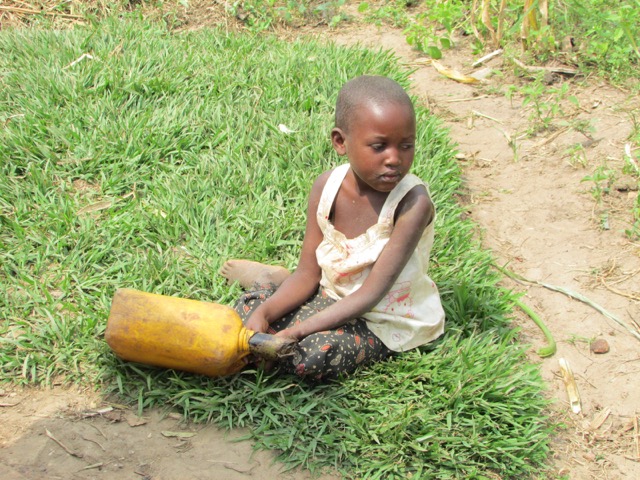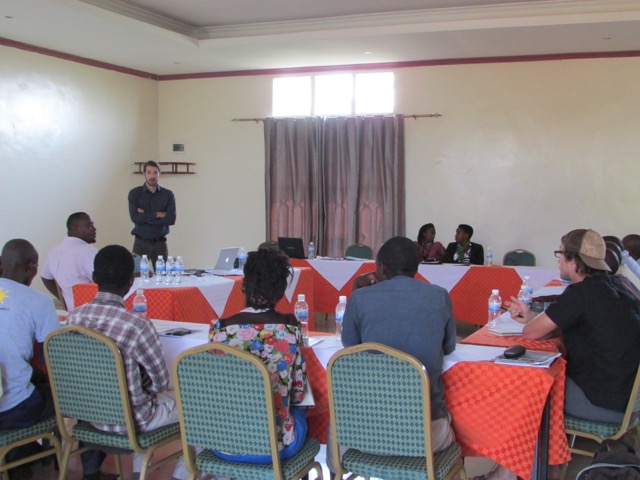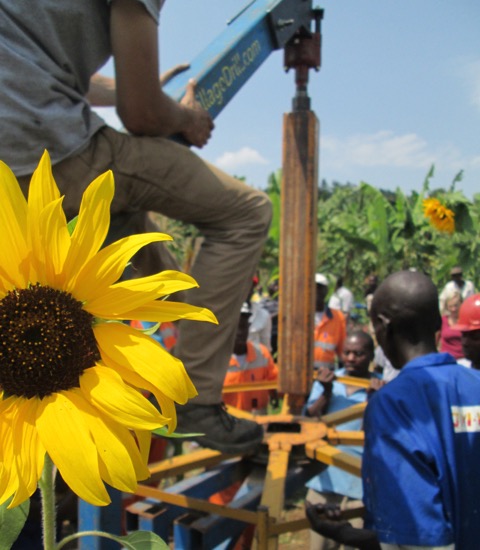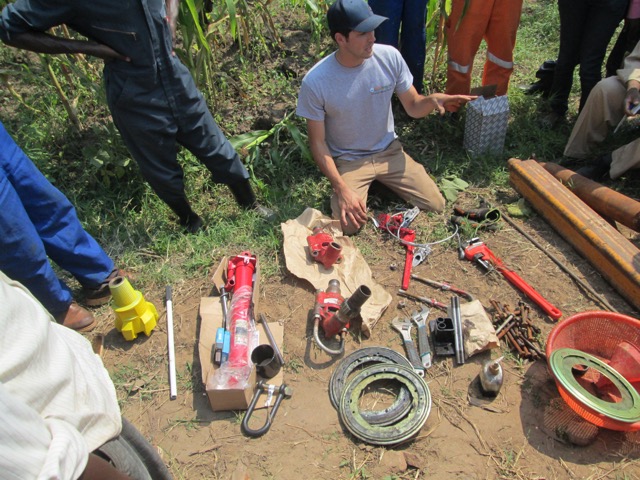 Being here in Rwanda with my now great friend Micah (WHOlives associate) and the World Vision WASH (Water & Sanitation Hygiene) team, the goal was to learn how the six drills they’ve purchased for this pilot program can be used more efficiently. This past week was spent in the field in the eastern part of Rwanda, doing training with the over 30 drill team members, as well as the ADP (area development program) WASH managers. A special consultant – now great friend – Koniba was brought in from Mali to train the teams in the areas of proper pump installation, as well as how to choose a site with the best chances of hitting water. I’ve learned a ton without question, mostly though i’ve been humbled by it all and learned the importance of seeking out a consultant of our own in Ghana to guide the team with their first couple drills. In fact, we already have one lined up.
Being here in Rwanda with my now great friend Micah (WHOlives associate) and the World Vision WASH (Water & Sanitation Hygiene) team, the goal was to learn how the six drills they’ve purchased for this pilot program can be used more efficiently. This past week was spent in the field in the eastern part of Rwanda, doing training with the over 30 drill team members, as well as the ADP (area development program) WASH managers. A special consultant – now great friend – Koniba was brought in from Mali to train the teams in the areas of proper pump installation, as well as how to choose a site with the best chances of hitting water. I’ve learned a ton without question, mostly though i’ve been humbled by it all and learned the importance of seeking out a consultant of our own in Ghana to guide the team with their first couple drills. In fact, we already have one lined up.
The projects with World Vision have been – in Micah & my opinions – an almost complete flop. Not only are they treating their equipment like junk (when we arrived, the drills were literally found in a pile of junk), but why they chose a country like Rwanda to do a pilot with manual drills is still a wonder to us. They call it “the land of a thousand hills” for a reason, it’s not the most conducive drilling environment for any drilling operation, much less manual drilling. Without question there is a need, but with the governments efforts to congregate the people near the ridges for purposes of expanding agriculture & building more efficient infrastructure, drilling where there’s the best chance of finding water – the valleys – isn’t really the most efficient approach… more steps needed thereafter to then ‘get’ the water to the people. Very complicated.
 Another main area of training this past week was in teaching basic business principles to the teams. This revealed another problem (with the WV pilot). They didn’t seek out the entrepreneurial spirit in finding who would lead the charge for each team, then further the structure of finding someone to then manage, account, and sell, these tasks simply left unfilled. Anyway, as we are, they too are learning much in the process. One solution – which seems the most likely – is that they arrange to send 3-4 of the drills to WV WASH groups in other countries where the technology is far more appropriate (i.e. Mali where they’ve done more than 1,200 boreholes in the last 10yrs), then focus their efforts on finding consistent business for the two remaining drill teams, arranging the members in a way more conducive to their success.
Another main area of training this past week was in teaching basic business principles to the teams. This revealed another problem (with the WV pilot). They didn’t seek out the entrepreneurial spirit in finding who would lead the charge for each team, then further the structure of finding someone to then manage, account, and sell, these tasks simply left unfilled. Anyway, as we are, they too are learning much in the process. One solution – which seems the most likely – is that they arrange to send 3-4 of the drills to WV WASH groups in other countries where the technology is far more appropriate (i.e. Mali where they’ve done more than 1,200 boreholes in the last 10yrs), then focus their efforts on finding consistent business for the two remaining drill teams, arranging the members in a way more conducive to their success.
 We were able to set up & fire up a drill on Friday… ohh what an experience that was! It’s a magnificently simple piece of technology, the new rock ram attachment effectively eliminating the risk of being halted by rock too hard for the previous model.
We were able to set up & fire up a drill on Friday… ohh what an experience that was! It’s a magnificently simple piece of technology, the new rock ram attachment effectively eliminating the risk of being halted by rock too hard for the previous model.
One of the biggest takeaways this past week was in realizing the need to re-focus and expand the efforts with our team, to grow them into becoming ‘water technicians’ as opposed to simply drillers. There are other areas of great need in water which can be addressed, the services marketed alongside the cow – manual drilling… services such as installing rainwater catchment, fixing broken pumps, solar pump installation, at home purification installation etc etc…  We will build this out, and market to groups these services as we (they) grow into being more knowledgeable in the field. The hope is that the Village Drill will be the main effort, but in the interest of filling in the gaps and mitigating the risk of a slow start, expanding to other areas of need seems wise.
We will build this out, and market to groups these services as we (they) grow into being more knowledgeable in the field. The hope is that the Village Drill will be the main effort, but in the interest of filling in the gaps and mitigating the risk of a slow start, expanding to other areas of need seems wise.

Recent Comments